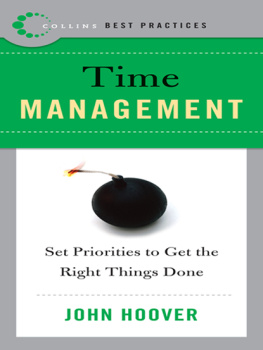Why are goals critical to achieving success? What is a smart goal, anyway? How can you set employees up for success by helping them craft the right goals? How does goal-setting make the performance review process less burdensome?
In this book, we distill the wisdom of some of the best minds in the field of performance management to help you achieve more through goal-setting. The language is simple and the design colorful to make the information easy to grasp.
Quizzes help you assess your knowledge of goal-setting and goal management. Case files show how companies have succeeded by setting challenging goals. Sidebars give you a big-picture look at goal-setting and highlight innovative, out-of-the-box solutions worth considering. Quotes from business leaders will motivate you as you face the challenge of setting smart goals for yourself, your employees, and your organization. Finally, in case you want to dig deeper into the topic of performance management and goals, as well as related management issues, we recommend some of the most important business books available. The authors of these books both influence and reflect todays thinking about goal-setting and management issues. Understanding the ideas they cover will inspire you as a manager.
Even if you dont dip into these volumes, the knowledge you gain from studying the pages of this book will equip you to set meaningful and challenging goals and to achieve moreto help you make a difference to your company and in the lives of the people who support you.
T HE E DITORS
Goals give you more than a reason to get up in the morning; they are an incentive to keep you going all day.
Harvey B. Mackay,
author of Swim with the Sharks
Without Being Eaten Alive
S uccessful business people and achievers in all fields use the techniques of goal-setting, a process that helps you decide exactly what you want to accomplish and then helps you systematically chart your course to get there.
Goals provide both long-term vision and short-term motivation. They keep employees focused and make it easier for you and your staff to organize time and resources to take advantage of opportunities. When workers focus and concentrate time, energy, and resources on a single goal, they can achieve amazing things.
Setting goals is a powerful way to boost performance. When you work toward a challenging goal, you feel motivated. Your effort translates into commitment and, ultimately, results. People with clear goals succeed because they know where theyre going. In fact, organizations with formalized performance management systems have higher profits, better cash flow, stronger employee performance, productivity well above industry averages, less employee turnover, and higher rates of recruiting success.
Behind the Numbers
THE BENEFITS ARE CLEAR
Research on goal-setting in the worlds of athletics and business has shown consistently that it can lead to enhanced performance. One recent analysis of a series of studies showed that goal-setting led to enhanced performance in 78 percent of sport and exercise studies, with moderate to strong effects in all.
SOURCE: Handbook for Sport Psychology edited by R. Singer, H. Hausenblas, and C. Janelle (Wiley, 2001). Cited in Goal Setting by Lee Crust in Peak Performance, www.pponline.co.uk.
For Managers
Managing your staff is a continuous cycle of goal-setting, coaching and feedback, evaluation, and reward. When you set goals, decide on a strategy to achieve them, and agree on milestones along the way, you are establishing standards for measuring competency, the development of skills, and other aspects of your workers on-the-job performance. Through goal-setting, you can involve employees in the organizations strategic direction, motivate them to perform at a higher level, and encourage continuing communication.
Goal-setting and goal management have other benefits. If you and your employees establish and manage goals, then formal performance reviews generally will be better experiences. Having specific and measurable goals eliminates much of the subjectivity from the evaluation process, and with it any sense of unfairness.
Goals become the standards for measuring performance. Then, the formal reviewwhich should no longer have many surprisesis a good opportunity for you and your employees to evaluate their recent work. If employees are achieving their goals, you can reward them. For many employees, the knowledge and growth that result from stretching to reach goals are rewarding in themselves.
Self-Assessment Quiz
YOUR OWN PREPARATION FOR GOAL-SETTING
Read each of the following statements and indicate whether you agree or disagree. Then check your score at the end.
- I fully believe goal-setting is the basis for success in performance improvement.
Agree Disagree - I know I can help my team with their goals, but I cant tell them what their goals are.
Agree Disagree - We cant move forward without having a thorough knowledge of the companys strategy and objectives, even though they are a moving target.
Agree Disagree - Employees know they can come to me when they feel things are slipping and get real help.
Agree Disagree - Dreams are part of goal-setting.
Agree Disagree - My team never worries about surprises at appraisal time.
Agree Disagree - Its important for me to getand stayup to speed on industry trends.
Agree Disagree - My people dont feel a big need to participate in the office grapevine.
Agree Disagree - Goal-setting is a negotiation.
Agree Disagree - My employees are individuals with distinct styles, and I need to approach goal-setting with that in mind.
Agree Disagree
Scoring
Give yourself 1 point for every question you answered Agree.
Analysis
| You have the potential to be highly successful in helping your team set and achieve their goals. |
| You could use some work setting goals for you and your team. |
| You still have a lot to learn about goal-setting and performance management. |
When employees are working toward a goal, every day has a mission. Their self-confidence grows as they recognize their ability to take control of their situationand to reap rewards from their team and their organization for their accomplishments. The satisfaction they derive from this personal growth keeps them energized and motivated, fresh and productive.
Goal-setting is an indispensable tool that gives shape and direction to the work of an individual employee, as well as to a department and organization.






